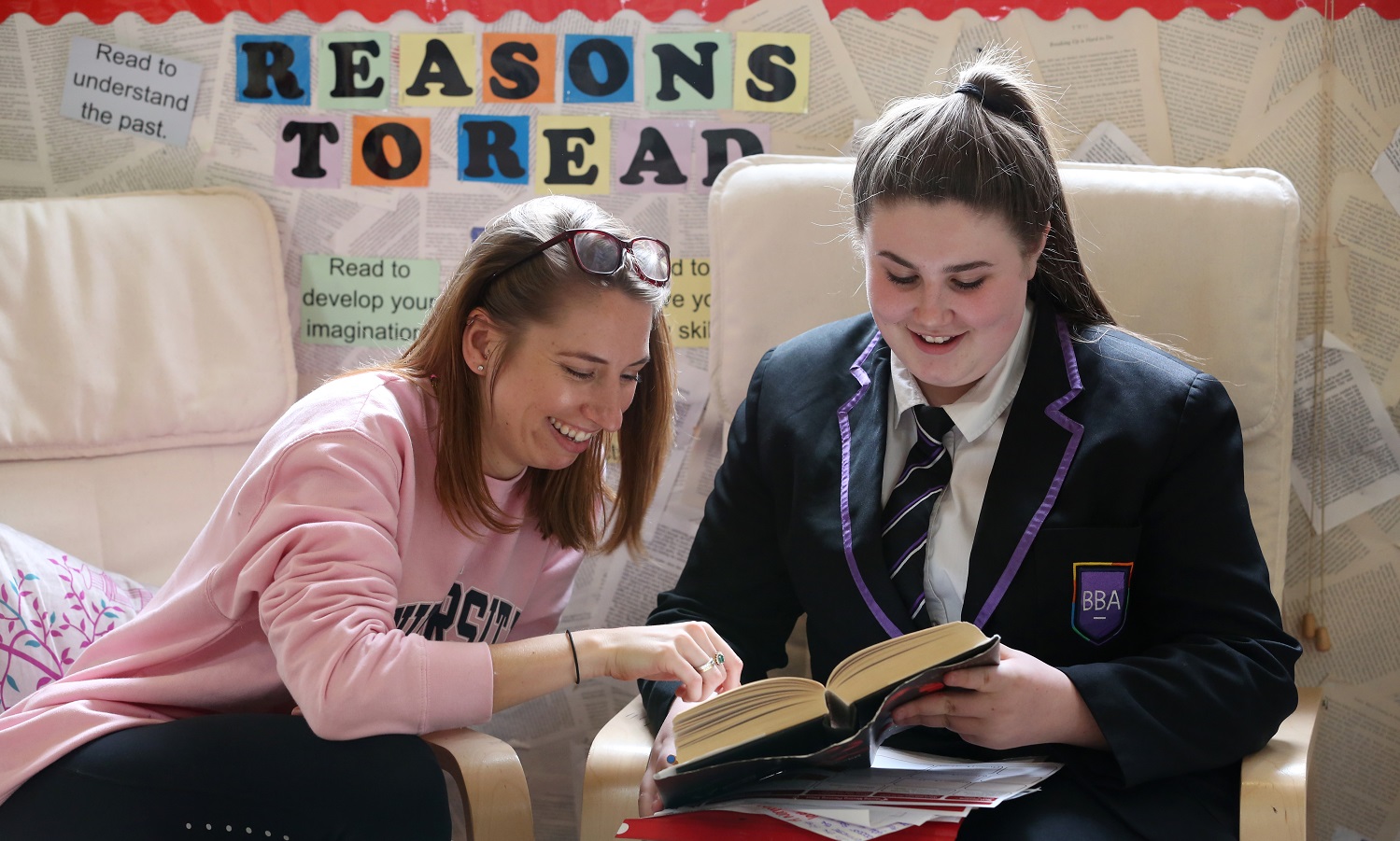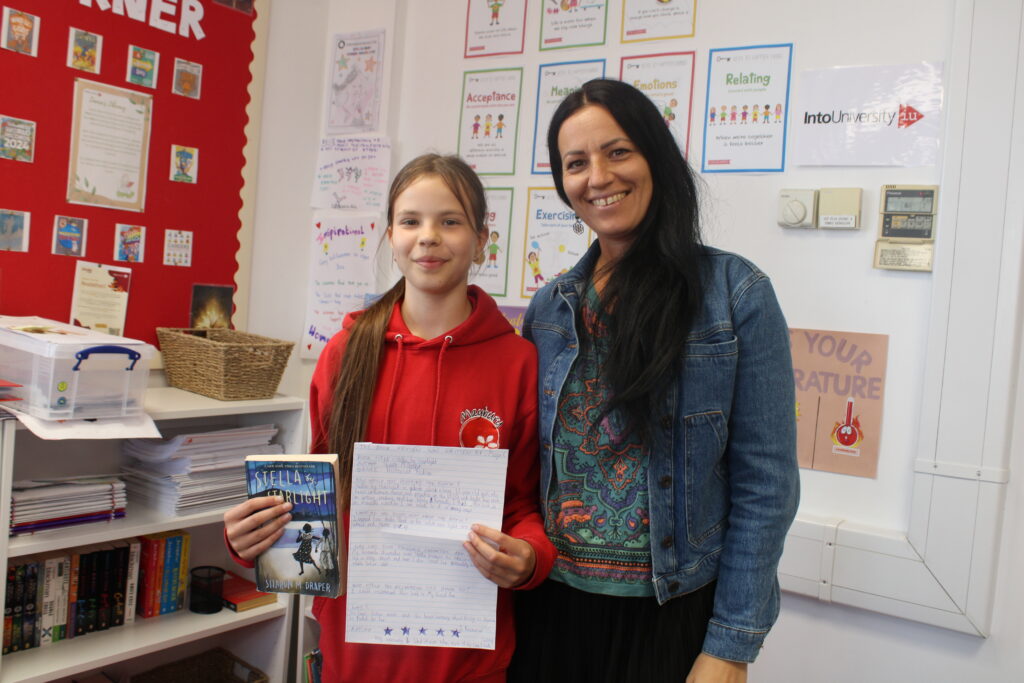
Why Reading for Pleasure Matters
How IntoUniversity’s Readathon sparked joy in reading at a time of national decline, helping children build the literacy skills vital for confidence, wellbeing, and lifelong success.

How IntoUniversity’s Readathon sparked joy in reading at a time of national decline, helping children build the literacy skills vital for confidence, wellbeing, and lifelong success.
As we reflect on working with our 250,000th student in 2025, we’re reminded that every young person we support has a unique story. Visiting even a few after-school Academic Support sessions reveals just how IntoUniversity staff build relationships with students, tailoring support to match individual needs and personalities.
While every student’s story is different, one thing remains constant: the power of reading. At all of our centres, we promote a love of reading because it improves literacy skills and boosts well-being, empowering students to shape their own stories.
Recently, we ran a network-wide Readathon for our Primary Academic Support students. Hundreds of children took part, reading books and writing reviews. Year 6 student Maya from IntoUniversity Hull East, won first place for her insightful review of ‘Stella by Starlight’ by Sharon M. Draper. Centre Leader Jade Hinchliffe reflected, “this event highlighted to students the wealth of books we have in the library and since then, the students have been very engaged with our library and reading corner.”

Maya, winner of best Readathon book review, and her mum at IntoUniversity Hull East
We also witness the impact of reading in everyday moments. One mentor from Leeds South shared that her favourite moment from volunteering was, “when I introduced [my mentee] to the ‘Mr Gum’ books. Initially, she said that she wasn’t interested in reading. After a few chapters, she absolutely loved it, and now says that she really likes reading because of that book.”
Sadly, reading for pleasure is in sharp decline. According to the National Literacy Trust, just 1 in 3 children and young people aged 8 to 18 now enjoy reading in their free time, a 36% drop since 2005. Yet research consistently shows that children who enjoy reading are more likely to have better mental wellbeing and achieve stronger outcomes at school.
When children fall behind in literacy early in life, the effects can be long-lasting. Literacy, the ability to read, write and communicate effectively, underpins a child’s confidence, self-esteem, and ability to succeed at school. As adults, poor literacy can make everyday life hard to navigate, from booking a medical appointment to supporting their own children in completing their homework.
In 2023, over 185,000 children started school without the literacy, communication, and language skills they needed to thrive – a stark reminder of the importance of early intervention – with a quarter of students leaving Primary school not meeting the expected standard for reading (National Literacy Trust, 2024; GOV.UK 2025).
Children living in poverty face additional barriers to literacy development due to a lack of resources and information at home, with parents under increasing pressure from the cost-of-living crisis and cuts to early years services. 1 in 8 children on free school meals don’t own a single book, compared to 1 in 13 of their peers (National Literacy Trust, 2024). By GCSEs, they’re 18.8 months behind in their attainment at school (EPI, 2023). These gaps matter, book ownership and early literacy are linked to long-term academic, economic, and social outcomes, making literacy a pressing issue of social justice.
Reflecting on the 250,000 unique stories we support, reading remains a vital part of every young person’s journey. Reading for pleasure should be a right, not a privilege. The recent announcement by Education Secretary Bridget Phillipson declaring 2026 as the National Year of Reading marks a significant step forward.
Planned strategies include increased investment in literacy teaching, the expansion of English Hubs nationwide, and the targeted distribution of books to communities facing the highest levels of deprivation. Described by the National Literacy Trust as ‘a multi-sector response,’ this initiative aligns closely with IntoUniversity’s ongoing commitment to fostering a culture of reading for pleasure.
Everyone deserves the chance to discover stories that inspire them and to develop the literacy skills that give them a fair chance at life.